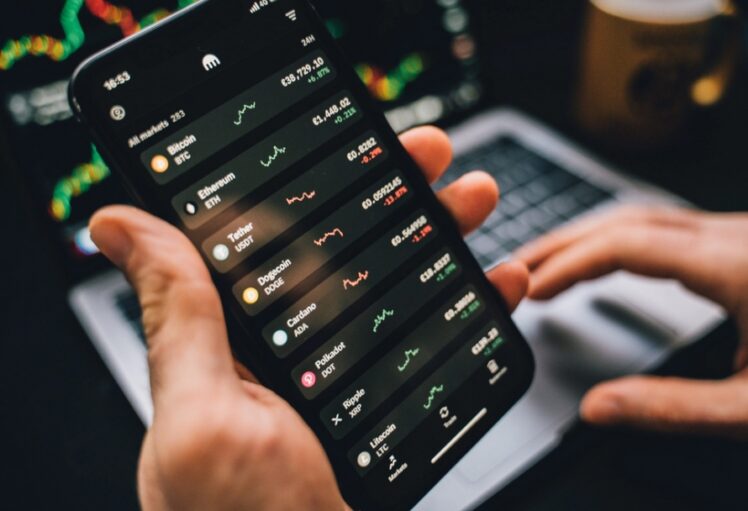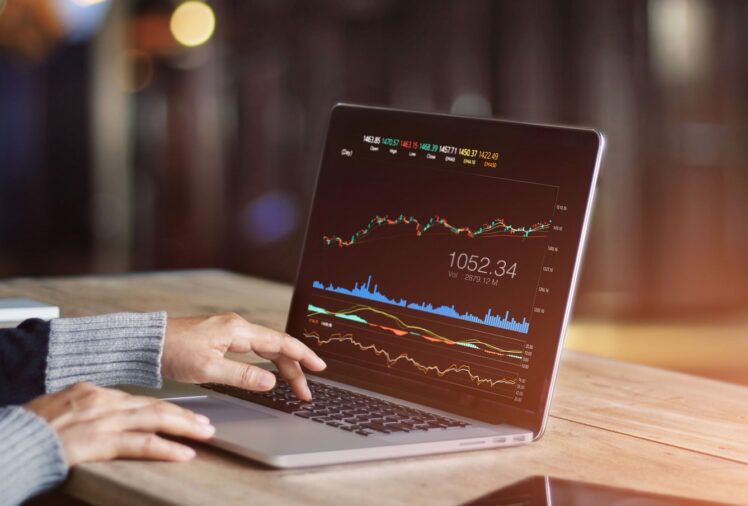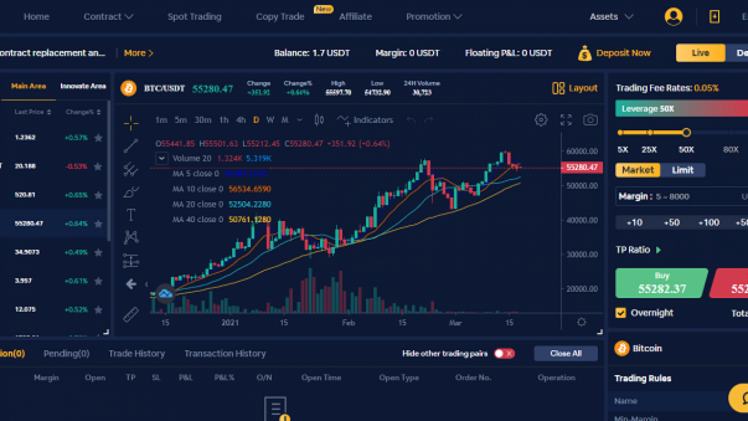Home › Business › Trading
Online Trading: Everything You Need To Know Before Starting It
Published on:
Knowledge is power: that’s a fact.
And that’s true for every aspect of our life, even from a financial point of view, and especially true if you want to master a financial market.
Through the help of specialists of this sector, we therefore decided to make a small and yet exhaustive guide of the most important aspects of online trading. That includes an analysis of how online trading works, the main regulators worldwide for brokers, how to open a trading account to start this activity and, of course, our top choice for beginners for a trading platform.

Contents
Online Trading: How It Works
Online trading is the act of trading financial assets through the usage of an online trading platform. To access those platforms and become a trader, you must subscribe to an online brokerage service, which must be regulated by a financial authority.
Through online trading today people from all over the world can invest in thousands of different assets and markets, which goes far beyond the stock market -which is still the most famous financial market today. Among the most important markets accessible today through modern trading platforms we remember:
- Forex
- Stocks
- CFDs
- Commodities
- Futures
- Cryptocurrencies
- ETFs
- Indices
That being said, a financial market is still a market, and as any other market is driven by one rule before every other rule: supply and demand. With that kept in mind, we can go further with our analysis and focus on another major aspect of online trading: staying safe!

Importance Of A Regulator
A regulation is a barrier between- us and scammers when we look at a brokerage service.
A broker, to be considered trustworthy, must be regulated. Checking if we are in front of a regulated broker or not it’s easy: usually they show their license number on their main page or in the “Regulation” voice. If you want to double-check it then you can also check on the regulators’ main pages if there is actually a match between- the license number or some other trace of the interested broker.
The following list is comprehensive of some of the top regulators across the world and the presence of one or more licenses linked to those names in a broker’s regulation is an assurance for their future investors.
- AFA – Andorran Financial Authority (Andorra)
- ASIC – Australian Securities and Investments Commission (Australia)
- BACEN – Banco Central do Brasil (Brazil)
- BaFin – Bundesanstalt für Finanzdienstleistungsaufsicht (Germany)
- BMA – Bermuda Monetary Authority (Bermuda)
- CBR – Central Bank of Russia (Russia)
- CIMA – Cayman Islands Monetary Authority (Cayman Islands)
- CONSOB – Commissione Nazionale per le Società e la Borsa (Italy)
- CYSEC – Cyprus Securities and Exchange Commission (Cyprus)
- ESMA – European Securities and Markets Authority (European Union)
- FCA – Financial Conduct Authority (United Kingdom)
- FinCEN – Financial Crimes Enforcement Network (USA)
- FIN-FSA – Finnish Financial Supervisory Authority (Finland)
- FMA – Financial Market Authority (Liechtenstein)
- FSA – Financial Service Authority (St. Vincent & The Grenadines)
- FSC – Financial Services Commission (South Korea)
- HKMA – Hong Kong Monetary Authority (Hong Kong)
- IIROC – Investment Industry Regulatory Organization of Canada (Canada)
- ISA – Israel Securities Authority (Israel)
- JFSA – Financial Services Agency (Japan)
- MAS – Monetary Authority of Singapore (Singapore)
- MFSA – Malta Financial Services Authority (Malta)
- SEBI – Securities and Exchange Board of India
- SEC – Securities & Exchange Commission (USA)
- SFC – Hong Kong Securities and Futures Commission (Hong Kong)
- SFSA – Seychelles Financial Services Authority (Seychelles)
Remember that if you want to invest with a non-regulated broker, it’s very likely that you’re going to lose all of your investment. Or worse: you’re going to have problems with the local financial authorities.

How To Open A Trading Account
Once you decide your future regulated broker and check their regulation, you are ready to open your first trading account.
Signing up for a trading account is a pretty standard procedure which is similar across most brokerage services. First of all, you will have to give your personal data, CC and/or bank details. Once you have done that, to prove it the system will ask you to upload a proof of identity and a proof of address.
- Proof of identity must be a valid ID such as a passport or a drive license
- Proof of residency must be a document linked to the ID you give up during your registration, such as gas bill or a bank statement
To complete this procedure, most brokers also ask for a minimum deposit. The amount of a minimum deposit may differ enormously depending on the brokerage service, but usually it range from a price of 100 USD to 250 USD.

Best Trading Platform For A Beginner: eToro
This broker started in 2007 with the name “Retail FX”, but today is internationally renown as eToro. And it became so famous that many people know the name eToro, even the ones who are not interested in a new financial investment, thanks to one of the best promotional campaigns between- online brokers.
Their fame is also linked to two main features which made their service unique and desirable, especially for beginner traders: we are speaking about social trading and copy trading.
- Social Trading: eToro is the top social trading network worldwide today. Empowered by more than 20 millions of users, they introduced for them an array of social features which made the eToro platform the perfect mix between- a social network and a trading platform.
- Copy Trading: along with the first aforementioned feature goes copy trading, an automated trading system able to copy any traders’ portfolio and their open position present on the eToro platform.
Finally, if you want to try by yourself the potential of this platform, you can also open a free demo account. A demo will react as if you already made your first deposit on eToro, and everything will pass through the usage of a virtual balance. Thanks to it, you’ll have the possibility of trying out all those features present in the offer without worrying of failing or losing your money.

Remember though that a demo is only a simulation, therefore you must be aware that once you make your minimum deposit and activate your trading account, the risk of losing your investment is real. So remember: never invest more than you can afford to lose!
Share With Your Friends
